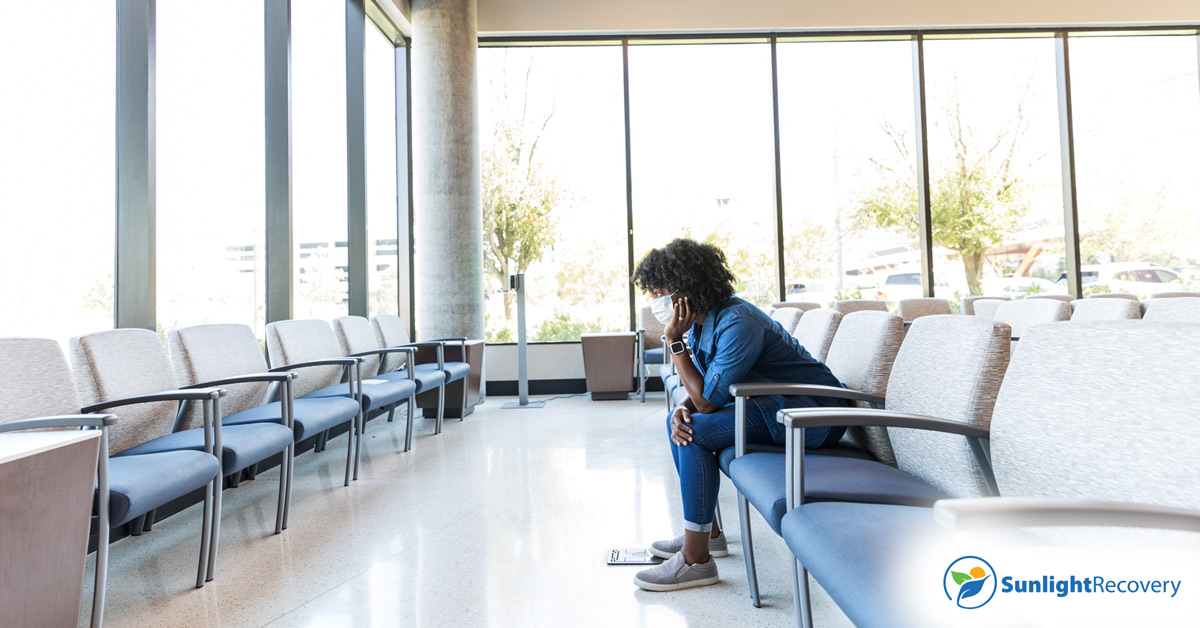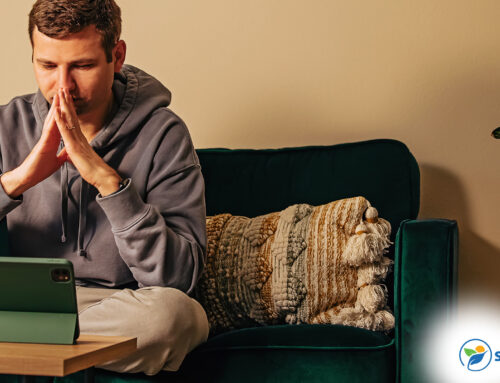In 2021, the National Center for Health Statistics announced that 100,306 people had died from drug overdoses in a single year, a 28.5% increase from the previous year. A few years prior, the Association of American Medical Colleges revealed that out of the 21.2 million Americans with substance use disorders, only 11% of them received treatment. These statistics show that millions of people need treatment but suffer from the stigma of recovery.
Some people avoid rehab because they believe they don’t have time or can’t afford the program. However, many decline help because they fear judgment from their peers. Social stigma is one of the biggest barriers to recovery in the United States. To get help, people must challenge the stigma and do what’s best for their health.
What Keeps People From Seeking Help?
Fear of Judgment
While the National Institute of Mental Health classifies addiction as a mental health disorder, society calls these people “addicts.” The word “addict” brings to mind a lazy, self-absorbed person who gets high to avoid responsibility. Other derogatory terms, such as “junkie,” “meth head” and “crackhead,” dehumanize mentally ill people.
Going to rehab means admitting you have a problem. As a result, people worry about what their friends, relatives, neighbors and coworkers might think if they heard the news. Would they call them weak, lazy, selfish or entitled? What if they lose their job or their friends kick them out of their group?
Worse still, some communities stereotype drug users as violent criminals. Potential clients worry that their neighbors would fear them, call them a bad influence or tell them to stay away from their kids. Unfortunately, the stress drives them deeper into their addiction.
Negative Beliefs About Treatment
Some people point to post-rehab relapse statistics as “proof” that treatment doesn’t work. However, these people ignore the percentage of graduates who stay sober, assuming their loved one couldn’t be one of them. This lack of confidence makes people even less likely to seek help.
Conversely, others see rehab communities as resorts for people too “weak” to stop using substances on their own. However, most centers offer program information that shows visitors how hard their residents work. Rehab typically involves hours of therapy and classes each day, not hours of leisure time.
Lack of Knowledge
Misconceptions about mental illness and addiction are one of the biggest barriers to recovery from addiction. When someone tells a friend they’re considering rehab, they might hear the following:
- Why don’t you just quit now?
- Why do you need therapy? Can’t you just stop drinking?
- Why don’t you detox at home?
- What are they going to tell you that you don’t already know?
- Are you just trying to get away from everybody?
- I wish I had the time and money to just take off work like that.
Statements like these can convince someone to abandon their program. However, these beliefs reveal a fundamental misunderstanding of rehab centers.
When people try to detox at home, the cravings and withdrawals often cause a relapse. In extreme cases, at-home detoxes become medical emergencies. Rehab centers provide medical detoxes with medication that eases symptoms and 24-hour access to emergency care.
Likewise, rehab professionals know that mentally ill people can’t “just stop using.” They treat clients with group, individual and family therapy that unearths the cause of their disorder. Once they process their trauma, they can use healthy coping skills without turning back to the substance.
Rehab also helps residents stay sober with support groups and aftercare programs. Clients don’t just pay for therapy and leave. Instead, they make connections that continue to nurture them after they graduate.
Difficulty Talking to Others
Society views introverts as shy, but even extroverts struggle to discuss challenging subjects. When they consider rehab, many people don’t know how to bring it up without shocking or angering their loved ones. They go back and forth in their heads before dropping the idea altogether.
Likewise, friends and relatives of a person with a substance abuse disorder often struggle to bring it up. They want to help their loved one without offending them or driving them away. Talking to a therapist could help them find answers before approaching the person.
Fear of Failure
Despite new research, black-and-white views of rehab persist in society. Many people believe rehab is a boot camp that “whips you into shape” and relapsing is a sign of weakness. For this reason, their loved ones decline to join a program, thinking that relapsing once is unforgivable.
Surprisingly, some families are too supportive. Comments like “You’re strong enough to do this on your own!” and “I bet you’d stay clean forever if you went to rehab!” discourage people who worry they won’t meet their loved ones’ expectations. The pressure from toxic positivity also increases their risk of relapsing.
How to Overcome the Stigma of Recovery
Talk about the benefits of recovery with people willing to listen. Explain how the program’s services, such as group therapy, individual counseling and medical care, treat addiction and help you stay sober. Provide statistics to back up your claims — some people change their minds when they see proof.
If possible, find a way to relate to the listener’s experience. For example, if they attended physical rehab for a muscle injury, you could draw comparisons between physical and mental treatment. Both require training, patience and medical care from licensed professionals.
Be Firm
People can complain, but they can’t stop you from getting help. Remind them that you’re choosing to make a difference in your life. If your social circle is one of your biggest barriers to treatment, you might have a toxic environment that doesn’t want you to improve. Fortunately, rehab counselors teach you how to find supportive friends.
Be Realistic
At the same time, don’t exaggerate rehab’s benefits. Rehab doesn’t cure you — it provides support, introspection and healthy coping skills. Some might point out that plenty of people relapse after they graduate. Acknowledge this fact, but remind them that relapse isn’t the end of the journey. Plus, thousands of people never relapse at all.
Ultimately, you can’t change people’s minds, but you can ignore their judgments and make your own choices.
Seek Help Today
Sunlight Recovery’s hotline allows you to seek help in a confidential, judgment-free space. You can discuss your symptoms and treatment options without making an immediate decision. If you’re ready to check in, the operator will guide you through the admissions process. Contact us today to start your recovery journey.






